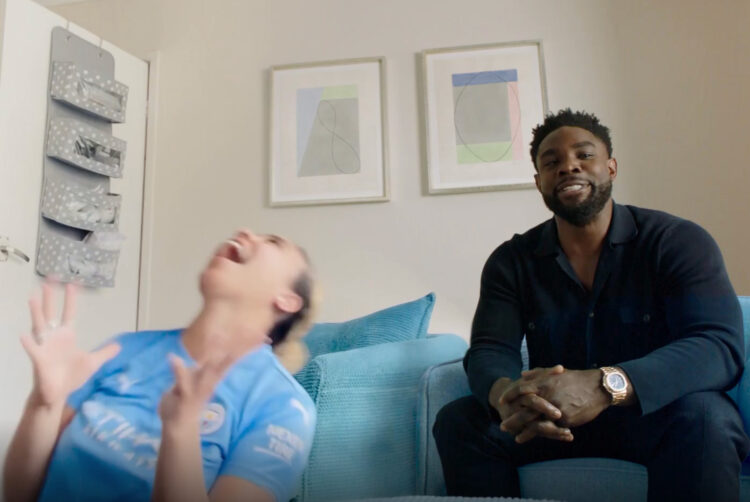Manchester City risks killing Sky’s golden goose

Opinion: 100% Media 0% Nonsense
Lack of sporting competition creates the deadliest form of cancer for live TV: it’s become boring, writes the editor-in-chief.
“I wonder if letting nation states dominate our major media assets is a good idea?”
Now that Manchester City has won its fourth Premier League title, a feat that has never before been achieved in the history of England’s biggest football league competition, isn’t it finally time to answer this question?
On Sunday, Man City, which has been effectively owned by the United Arab Emirates state of Abu Dhabi since 2008, was crowned England’s best team for the fifth time in six years.
In little over a decade of UAE backing, Man City has won every single trophy you can win in domestic club football. It has the best coach, the best players and some say the team is so good that it should be considered the best team to ever play the game.
The club’s ultimate owner is Sheikh Mansour bin Zayed Al Nahyan, who is vice-president of the UAE and member of the Abu Dhabi royal family.
It’s like if Prince Harry decided to buy the Dallas Cowboys. Which — let’s be honest — could have happened if he wasn’t exiled to the US and left to fend for himself with dreadful podcasts and books.
Such a thing would rightly spark public outrage in the UK, where we have a free press and democratic institutions. In sunny UAE, activists and academics who criticise the government are detained and imprisoned, and their families are often harassed by the state security apparatus, according to Amnesty International.
Which is why it’s so pathetically obvious the reason Manchester City is owned by the UAE: sportswashing.
Soft power
If you’re a football fan who doesn’t care about free speech, listen to what people are chanting in the stands and shouting at the players during the game.
That speech is so free that it wouldn’t be allowed on any responsible media platform. OK, maybe Twitter (X).
This once mediocre football club is now enjoying the high life: wealthy men have bought it shiny objects and it enjoys the trappings of success, even if it’s all been earned on the basis of petrodollars and back-breaking labour from South Asia.
In return, Sheikh Mansour has achieved the kind of soft media power that no ad campaign will ever achieve: fans talk about visiting “the Etihad” stadium and don’t blink an eye when advertising for the Dubai Expo is plastered all over it.
Each week, some of the world’s best footballers, such as Kevin De Bruyne, Erling Haaland and Phil Foden, wear Etihad Airways on their chest.
The whole idea of the UAE, a place where political dissent is outlawed and homosexuality is illegal, becomes part of the furniture of UK and European culture through sport.
A sporting regime whose owners endorse the statement “gays should be locked up” shouldn’t be praised, celebrated or even taken seriously.
Lace disgrace
This creates embarrassment for Sky, where few presenters (with the exception of the creditable Gary Neville) dare to raise the issue of improper football ownership.
Last year, former Liverpool captain Jordan Henderson was widely ridiculed for going to work in Saudi Arabia, having previously shown support for LGBT+ rights campaigns. Where is the opprobrium for Sky Sports, which dutifully promotes a Rainbow Laces campaign to support LGBT+ rights every year, despite promoting the business interests of anti-gay countries?
In 2021, Newcastle United was taken over by a Saudi Arabia investment fund. Up until last Christmas, a Qatar fund was in advanced talks to acquire Manchester United.
That would have made a hat-trick of queer-bashing owners. They could set up their own mini-league: the Phobic Threesome.
That’s the thing about sportswashing: all you need to do is rinse and repeat.
Let’s be clear: the only thing that is stopping more Premier League clubs being bought this way is the fact that there aren’t that many wealthy, autocratic petro-states to go around. It’s certainly not because anyone at the Premier League, The Football Association or any other sporting governing body is intent to stop it.
More than just money
For Sky, the continued dominance of Manchester City offers another threat that could be business-critical.
There is a risk that football becomes boring.
Sky has, according to analysts, “long accepted that broadcasting football is a loss leader” and it’s the operator’s principal defence against subscriber churn. Live football is expensive to show, but it’s bundled with packages and services that people don’t really want, such as nature channels, long-tail entertainment networks and niche interests.
This matters because live sport is one of the few content categories that are propping up linear TV as it slowly declines in relative media importance.
Sky’s ad slogan in 2022 is true: “It only happens live once.” There is a magic quality to live programming when, as a viewer, you know you’re seeing something happening in the present alongside maybe millions of other people.
And we only preserve the magic of live sport if those sports are going to be serious about competition and fair play.
You can’t be neutral about letting nation states own sporting assets, which are media assets through broadcast and online streaming. We don’t just take their money — we take their politics and their culture with it.
Fans may not care enough to stop sportwashing, which is why it’s such an influential soft-power tool used by nation states, brands and wealthy individuals.
But once a handful of ridiculously wealthy owners make the whole idea of sporting competition a joke, audiences will move elsewhere.
 Omar Oakes is editor-in-chief of The Media Leader
Omar Oakes is editor-in-chief of The Media Leader
100% Media 0% Nonsense is a weekly column about the state of media and advertising. Make sure you sign up to our daily newsletter to get this column first in your inbox every Monday, as well as key updates with what’s happening at The Media Leader and our upcoming events.
The Netflix delusion: Turns out the normal rules of media did apply, after all




